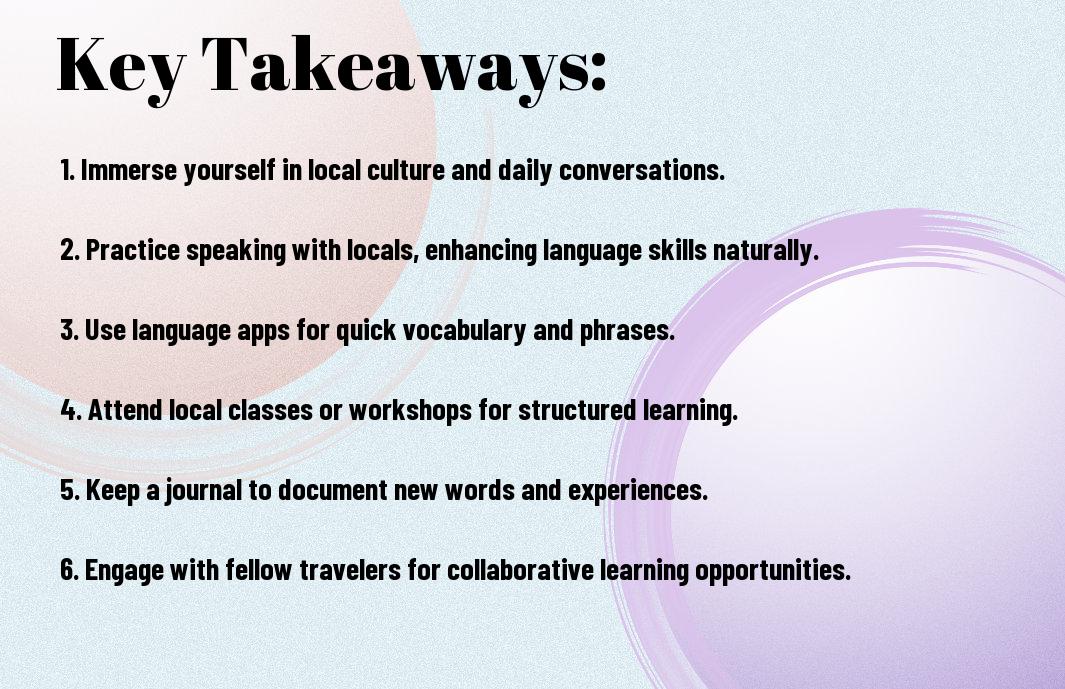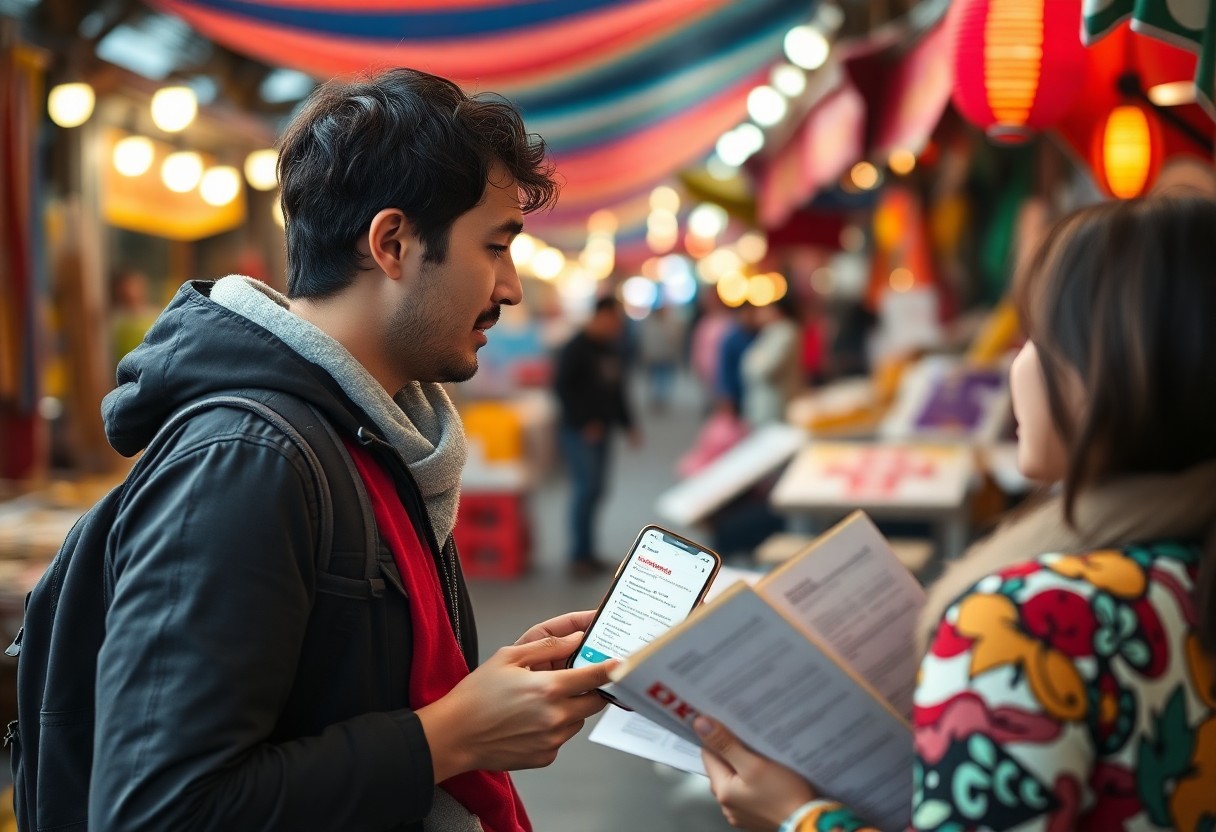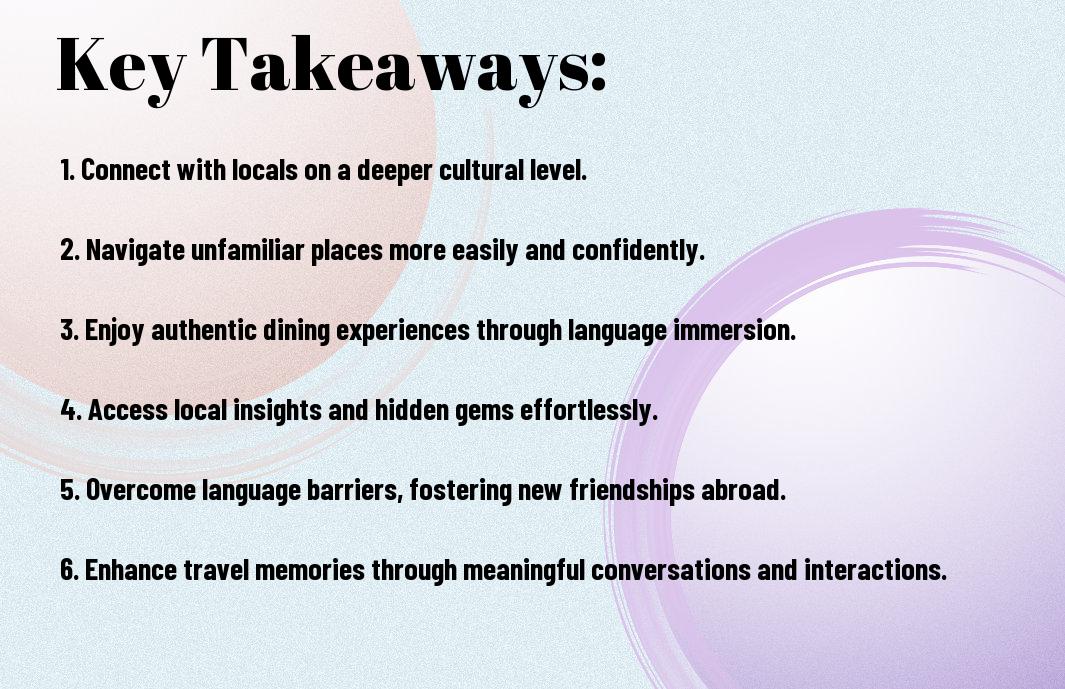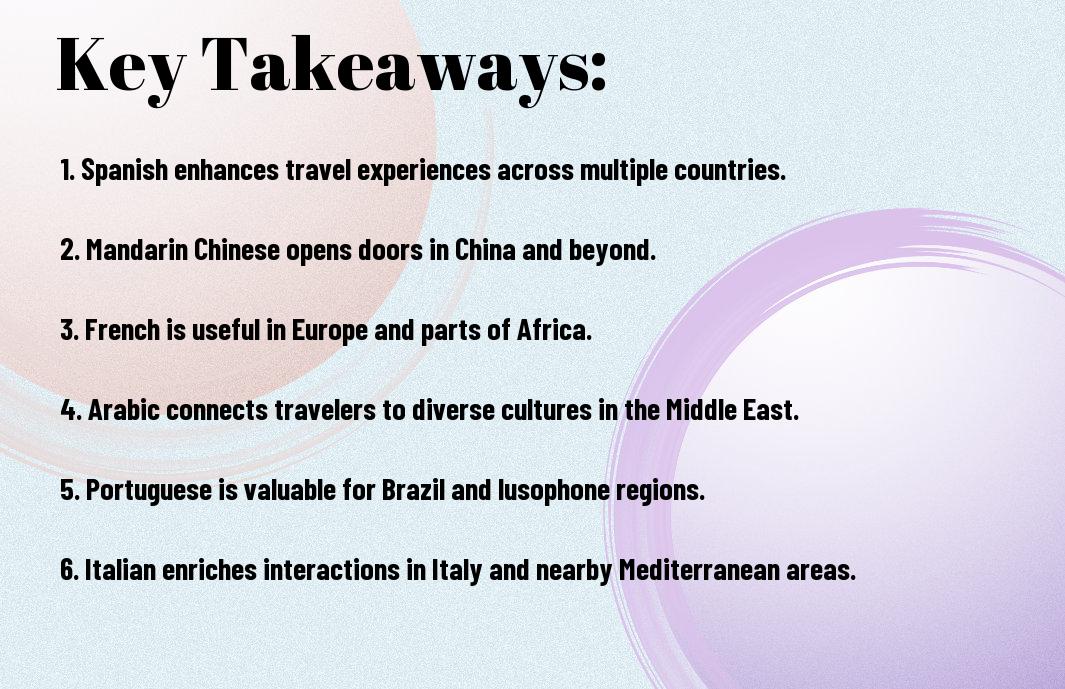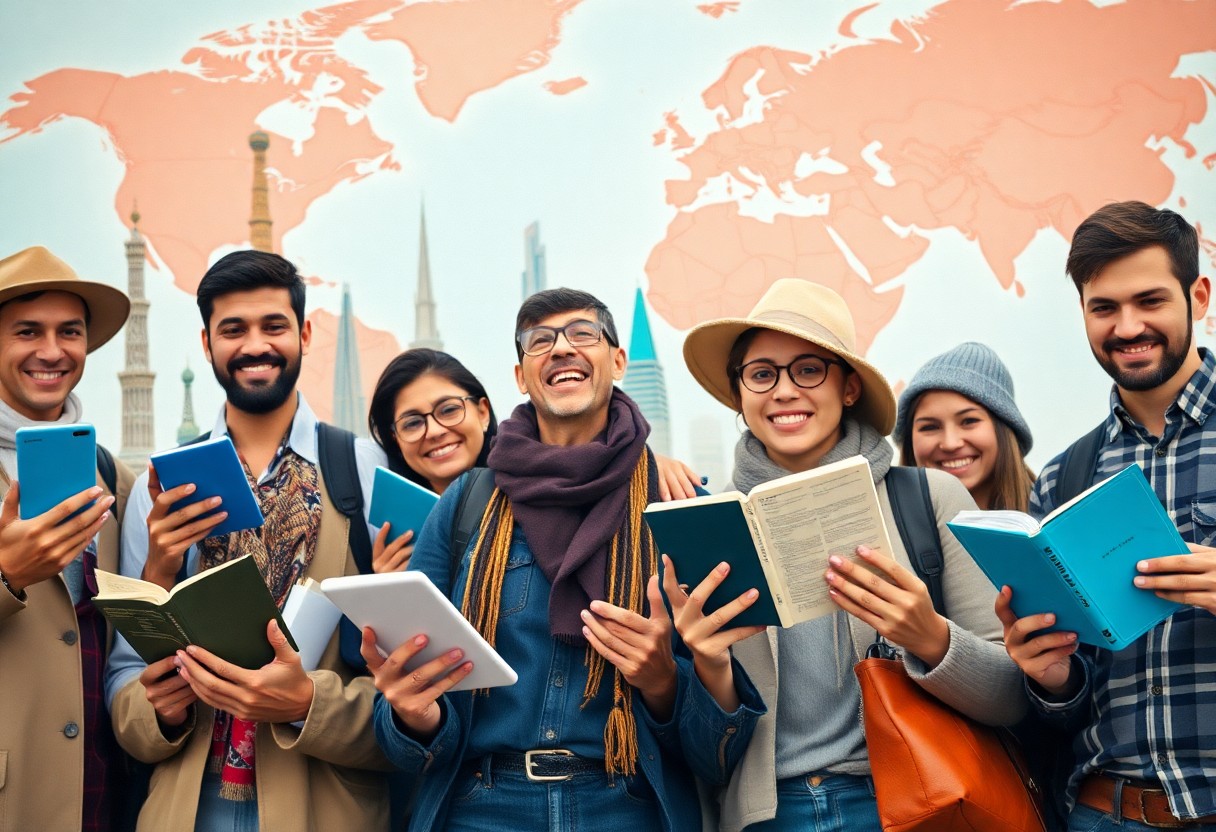To commence on a journey around the world, it’s necessary to consider the languages that can facilitate communication and immersion in foreign cultures. Here are some key languages for travel enthusiasts:
- The Spanish language is highly beneficial for traveling to Spain, Latin America, and the Caribbean, with over 460 million native speakers worldwide.
- Mandarin Chinese is a valuable language to learn for travel, as it is spoken by over 1 billion people in China, Taiwan, and other countries with Chinese communities.
- French is an official language in several international organizations and is spoken in many countries, including France, Canada, Belgium, and several African nations.
- Arabic is a useful language for traveling to the Middle East and North Africa, with over 300 million native speakers across the region.
- English is widely spoken and understood in many countries, making it an excellent language to know for international travel, business, and communication.
Language Preferences
For travel enthusiasts, choosing the right language to learn can be overwhelming. You’ll want to consider languages that are widely spoken and can help you navigate various cultures with ease.
Popular languages for travel
Above all, languages like Spanish, Mandarin, and Arabic are top choices, as they are spoken by millions of people worldwide, making your travels more enjoyable and interactive.
Language families for easy learning
After selecting a language, you’ll find that some language families, such as Romance languages, are easier to learn, as they share similarities in grammar and vocabulary, making it simpler for you to pick up.
Considering your goals and travel plans, you’ll likely find that learning a language from a family with many similarities, such as the Romance languages, can be incredibly beneficial, allowing you to communicate with locals and enhance your overall travel experience, as you’ll be able to understand and appreciate the culture more deeply, and you can even apply your knowledge to learn other related languages more quickly.
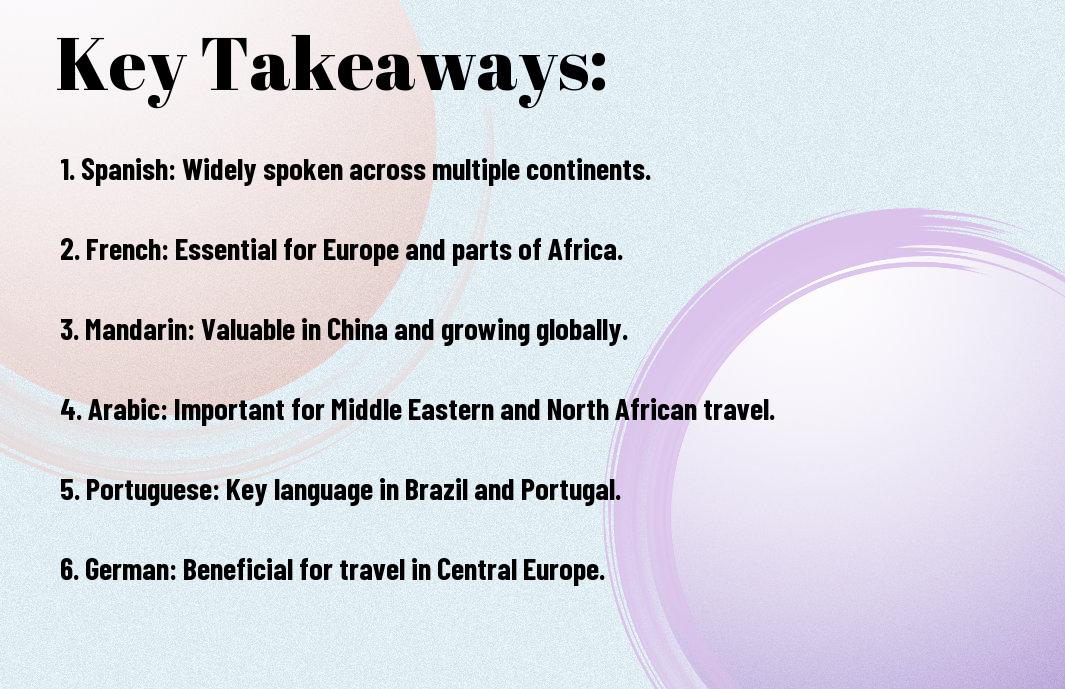
European Delights
Even if you’re a seasoned traveler, exploring Europe can be a thrilling experience, and speaking the local language can enhance your journey, as you’ll be able to connect with the culture and people on a deeper level, making your travels more enjoyable and allowing you to immerse yourself in the local way of life.
Spanish for the Mediterranean
With the warm climate and beautiful beaches of the Mediterranean, speaking Spanish will make your travels more enjoyable, as you’ll be able to communicate with locals, try delicious food, and explore historic sites, such as Barcelona and Madrid, that showcase the region’s rich history and culture, which will make your trip even more meaningful.
French for romantic getaways
An understanding of French will make your romantic getaway to Paris or the French Riviera even more unforgettable, as you’ll be able to appreciate the art, cuisine, and romantic atmosphere that these destinations have to offer, and you’ll be able to engage with the locals, making your experience more authentic and enjoyable.
And as you stroll along the Seine or visit the Eiffel Tower, you’ll find that speaking French allows you to fully appreciate the beauty and charm of these iconic destinations, and you’ll be able to navigate the city with ease, making the most of your time in France, and creating lasting memories of your romantic getaway, which will stay with you long after you leave.
Asian Adventures
Keep exploring the vibrant cultures of Asia, and you’ll discover a wealth of languages to learn. Your travels will take you to countries with rich histories and diverse traditions.
Mandarin for Chinese culture
Towards understanding the intricacies of Chinese culture, learning Mandarin will open doors to a world of ancient traditions and modern innovations, allowing you to fully immerse yourself in your travels.
Japanese for anime and tech
Just like Japanese enthusiasts, you can investigate into the fascinating world of anime, manga, and cutting-edge technology by learning the Japanese language, which will enhance your experience in this unique country.
Further into your exploration of Japanese culture, you’ll find that speaking the language will give you access to a wide range of experiences, from visiting famous anime and manga studios to attending tech conferences and festivals, making your travels even more memorable and enjoyable, and allowing you to connect with the locals on a deeper level, bringing your adventures to life.
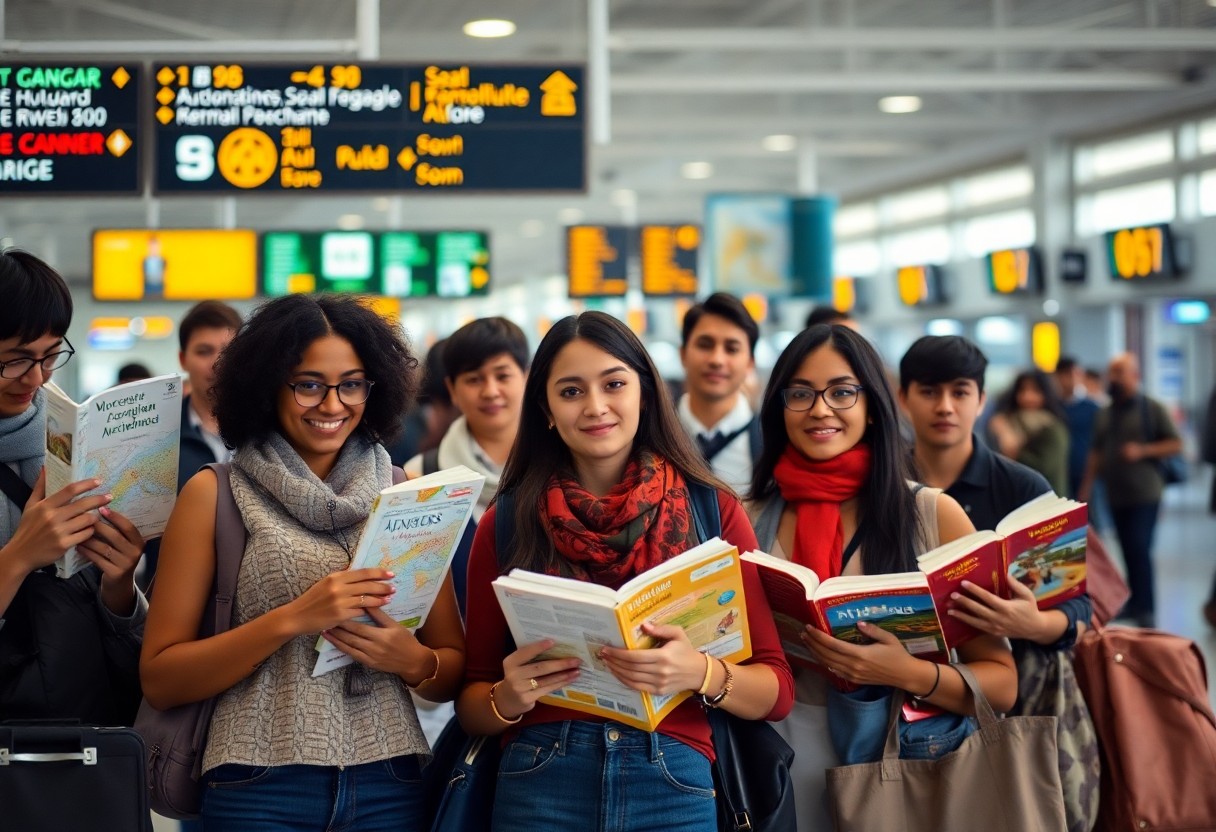
Practical Considerations
All travelers should consider the feasibility of learning a new language while on the go. You can find helpful tips on what’s the best way to learn a language while traveling to make the most of your experience.
Language learning resources
Practically, you’ll need reliable resources to learn a language, such as language learning apps, phrasebooks, or online courses, to help you navigate your destination.
Immersion techniques
For an authentic experience, consider staying with a host family or participating in language exchange programs to improve your language skills.
Language immersion is key to becoming proficient in a new language, and as you surround yourself with native speakers, you’ll pick up nuances and expressions that will enhance your travel experience, allowing you to connect with locals and appreciate your destination on a deeper level, making your journey even more enjoyable and rewarding, and helping you to make the most of your time abroad.
Cultural Connections
Once again, you’ll find that learning a new language can deepen your understanding of the culture you’re visiting, allowing you to navigate everyday situations with ease and make meaningful connections with locals.
Language and customs
Among the many benefits of language learning, you’ll discover that it helps you appreciate the customs and traditions of the place you’re visiting, enabling you to engage with your surroundings in a more authentic way.
Body language and nonverbal cues
Between the lines of language, you’ll pick up on nonverbal cues that convey just as much meaning as spoken words, helping you navigate social situations with confidence and avoid unintended offense.
It is especially important to consider the nuances of body language and nonverbal cues, as they can vary significantly from one culture to another, and being aware of these differences will help you communicate more effectively and build stronger relationships with the people you meet during your travels, allowing you to fully immerse yourself in your new surroundings and make the most of your experience.
Specialized Languages
Despite the popularity of widely spoken languages, learning specialized languages can enhance your travel experiences. You can explore unique cultures and communicate with locals more effectively.
Arabic for Middle Eastern travels
For instance, learning Arabic will help you navigate the Middle East, enabling you to engage with your surroundings and interact with locals in a more meaningful way, making your travels more enjoyable and authentic.
Portuguese for Brazilian and African adventures
Eastern cultures, such as those in Brazil and Africa, will become more accessible as you learn Portuguese, allowing you to appreciate the local customs and traditions that make your travels so enriching.
Even with basic knowledge of Portuguese, you can examine deeper into the vibrant cultures of Brazil and Africa, as you explore the historic cities, stunning landscapes, and lively festivals, creating unforgettable experiences as you connect with the people and places you encounter on your travels.
To wrap up
With this in mind, you can now make an informed decision about the best languages for your travel endeavors. You can explore options like Spanish, Mandarin, or Arabic to enhance your travel experiences. For more insights, visit As a native English speaker, which two further languages would give me the most benefits to discover the perfect fit for your travel goals, and tailor your language learning to your needs, boosting your travel enjoyment.
FAQ
Q: What are the most useful languages for travel enthusiasts to learn for their trips to Europe?
A: For travel enthusiasts planning to explore Europe, learning languages such as Spanish, French, German, and Italian can be highly beneficial. Spanish is widely spoken in Spain, Mexico, and many countries in Central and South America, making it a great choice for those traveling to these regions. French is the official language in France, Belgium, Switzerland, and several African countries, allowing travelers to communicate effectively in these destinations. German is spoken in Germany, Austria, and parts of Switzerland, while Italian is the primary language in Italy. Knowing these languages can enhance the travel experience, facilitate interactions with locals, and provide a deeper understanding of the culture.
Q: Which languages are most useful for travel enthusiasts visiting Asia and how can they help?
A: For travel enthusiasts exploring Asia, learning languages such as Mandarin Chinese, Japanese, and Korean can be extremely helpful. Mandarin Chinese is the most widely spoken language in the world and is used in China, Taiwan, and other Chinese communities worldwide. Japanese is spoken in Japan, and Korean is the primary language in Korea. Knowing these languages can assist travelers in navigating through cities, trying local cuisine, and engaging with the unique cultures of these countries. Additionally, many Asian countries have English as a secondary language, but speaking the local language can lead to more authentic interactions and a more immersive experience.
Q: How can learning a new language benefit travel enthusiasts in terms of cultural immersion and personal growth?
A: Learning a new language can significantly benefit travel enthusiasts by allowing them to fully immerse themselves in the local culture. When travelers can communicate in the native language, they can engage with locals, understand cultural nuances, and appreciate the history and customs of the destination. This, in turn, can lead to a more meaningful and fulfilling travel experience. Moreover, learning a new language requires dedication and persistence, which can foster personal growth and a sense of accomplishment. As travel enthusiasts navigate through unfamiliar territories and communicate with people from diverse backgrounds, they can develop valuable skills such as adaptability, empathy, and open-mindedness, making their travels not only enjoyable but also transformative.
